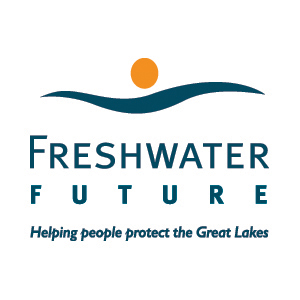
This week: House Passes Water Infrastructure Bill + Senator Harris Introduces Affordability Bill + Michigan Sulfide Mine Secures Last Permit + EPA to Host Great Lakes Public Engagement Sessions
U.S. House Passes Water Bill With Measures for Effort Against Asian Carp in the Great Lakes
The Water Resources Development Act passed the U.S. House of Representatives by a 408 to 2 margin. It contained an amendment authored by Rep. Dave Joyce (R-OH 14) that would require the Army Corps of Engineers to produce its final report in February 2019, rather than the delayed date announced by the Corps. The initial study recommended building multiple structural impediments near the Brandon Road Lock and Dam in Illinois to keep several voracious asian carp species from escaping the Mississippi River system into the Great Lakes. The $275 million set of renovations has enthusiastic support from several Great Lakes states, who have offered to share in the cost of construction. Most experts agree that the Brandon Road Lock and Dam is the most likely point of entry for asian carp species, and activists and groups—including Freshwater Future—support swift and immediate action to reduce the risk of transfer.
This Week’s Action: U.S. Senator Kamala Harris Introduces Water Affordability Bill
On Wednesday, U.S. Senator Kamala D. Harris introduced the Water Affordability Act of 2018, legislation that would help low-income families across the country pay for rising sewer and water bills. The Act would direct the Environmental Protection Agency (EPA) to establish a pilot program, named the Low Income Sewer and Water Assistance Program (LISWAP), to award grants for public water utility companies to assist low-income households with bill repayment. Eligibility for grant assistance would consider “environmental risk factors” and “inequitable environmental burdens” as part of the eligibility criteria.
Freshwater Future supports this bill, and we’ve made it easy to tell your senator to support this bill too—here. Let’s make clean, affordable water an election issue!
After EPA Objections, Michigan’s Back 40 Mine Receives Final Permit from DEQ
On Monday, the Michigan Department of Environmental Quality (DEQ) announced that it has issued a wetlands permit—the final permit needed—for the Aquila Resources Back Forty mining project in the Upper Peninsula. The DEQ had previously issued mining, air, and surface water discharge permits for the project.
This final permit was awarded despite objection from the DEQ’s own Water Resources staff. According to the agency’s “Findings of Fact,” the Water Resources Division states that Aquila’s permit application and materials did NOT demonstrate that the project could avoid “an unacceptable disruption” to aquatic resources and that the project is inconsistent with the permitting criteria. Furthermore, the DEQ awarded the permit without fully addressing the EPA-authored objection letter sent by federal agencies charged with enforcing the Clean Water Act. According to the DEQ, the wetland permit is awarded “conditionally” and requires the “submission and approval” of additional data and information, including “revised hydrologic modeling, an adaptive management plan, a comprehensive monitoring plan, and requisite wetland and stream mitigation.” Under the Clean Water Act, this information must be provided before a permit may be granted.
Local environmental groups Front 40 and Mining Action Group (MAG) of the Upper Peninsula Environmental Coalition (UPEC)—both Freshwater Future members and grant recipients—were instrumental in exposing gaps and flaws in the project’s permit applications. Check out their take on the DEQ’s decision here. While Michigan law limited the the impact of their work, their persistence and expertise have lessened the risk of this mine and given the public valuable oversight opportunities as the project moves forward. Freshwater Future is proud to have funded and supported the work of Front 40 and the Mining Action Group.
EPA to Host Public Engagement Sessions Across the Basin Regarding Great Lakes Restoration Initiative (GLRI) Projects
U.S. Environmental Protection Agency will host a series of public engagement sessions this summer to update the public on the Great Lakes Restoration Initiative (GLRI) and to seek their input on future priorities. The first engagement session will be held on June 13 in Toledo, followed by sessions in Rochester, Duluth, Milwaukee, Saginaw, and Chicago.
These events are places to have your voice heard on topics as varied as toxic substances and areas of concern, invasive species, nonpoint source pollution impacts on nearshore health, habitat and species, and future restoration actions. Click here for event information and locations.
Click here to be introduced to Freshwater Future



